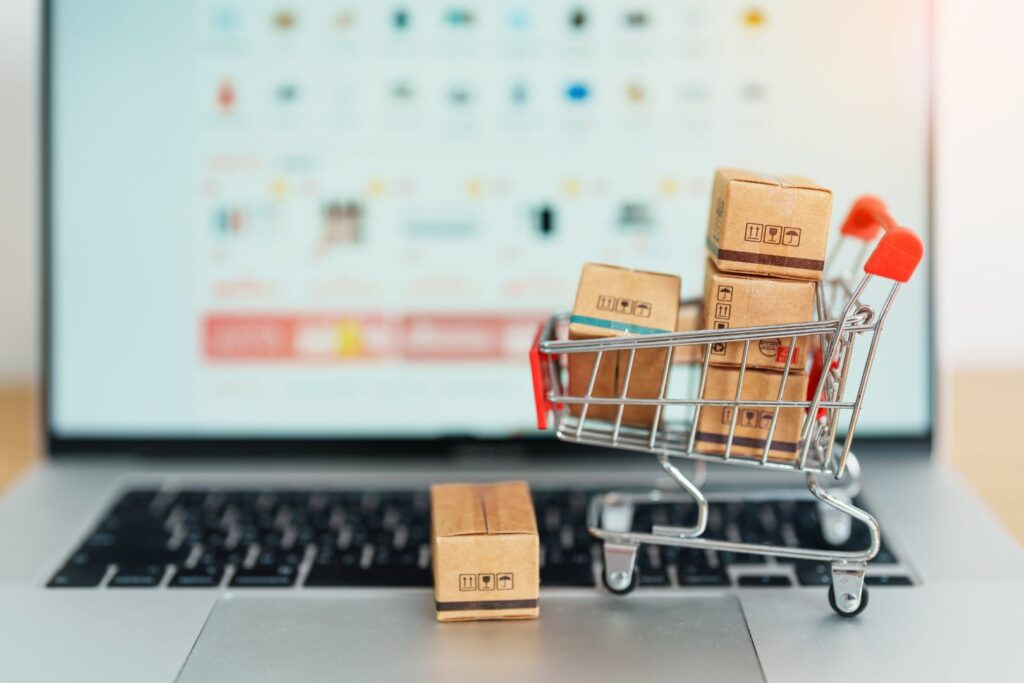The importance of B2B ecommerce has increased rapidly in recent years
A recent survey found that business to business (B2B) companies expected 2023 to generate at least 25% ecommerce sales growth.
The challenge is still to deliver B2B ecommerce customer experiences to match the quality of retail (B2C) online shopping. With a tap on their smartphone, shoppers can enjoy fast, engaging, anytime, anywhere experiences. B2B buyers want the same.
In fact, B2C customer experiences are so good some businesses have relied on B2C platforms to buy in bulk. This is because manufacturers, wholesalers and distributors aren’t providing simple, fast and workable online options for their B2B buyers.
Table of Contents

Customer expectations
Gartner predicts 80% of sales interactions between suppliers and buyers will take place using digital channels by 2025.
However, despite rapid digitization in the manufacturing, distribution and wholesale sectors, customer expectations are evolving even more quickly. High quality customer experiences such as personalization and omnichannel interactions are becoming requirements for B2B buyers. For the coming year there are some important steps you can take to stay ahead of the curve.

Data-driven decision making
You need high quality data if you’re relying on it to deliver competition-beating customer experiences. However, more than six out of 10 companies have concerns about data quality. Data management and use of machine learning (ML) are new skills requirements to ensure you have clean data. It will drive improvements in product data and personalized recommendations. Account-level business intelligence will also help to improve sales conversions and customer retention.
GenAI
Generative artificial intelligence or GenAI will be as important to B2B ecommerce as in other parts of our life. It can create useful and interesting content based on improved understanding of customer behavior. Product descriptions, dynamic content, recommendations and pricing optimization can all benefit. However, seven out of 10 buyers are already approaching poor quality automatically generated content with suspicion. Learning how to use GenAI effectively is a challenge everyone must face to avoid being downgraded by search engines.

Customized deals
Creating bespoke deals and offers tailored to B2B buyers’ needs has always helped to get deals over the line. However, customized pricing, discounts, catalogs and fulfillment online are complex processes. Tailoring every part of the procurement journey via a dedicated customer portal is a priority for development in the coming year.
Collaboration
One of the big advantages of B2B ecommerce and business systems integration is the opportunity to improve collaboration. When customers, your support staff and sales teams share information in real time they can work together more effectively. Increasingly, digital transformation is changing B2B operations, with a more agile approach from end to end.
Meet customer expectations with a purpose designed B2B ecommerce platform
Cloudfy is designed for manufacturers, wholesalers, and distributors who must handle complex business to business sales. It’s customizable, mobile-friendly, easy to manage and simple for your customers to use.
Your Cloudfy ecommerce website offers much more than wholesale ordering. It helps increase sales, improve customer journeys and reduce costs. You can automate processes and your international distribution requirements are met seamlessly.
It’s designed as a central hub for your customers to access your product catalog, process their purchases, submit quote requests, and manage their invoices. It’s a one-stop online self-service solution.
Integration with your enterprise (ERP) system allows you to share the latest pricing, product information and inventory levels online. Your registered customers can log-in to review their orders, check their accounts and pay their invoices. Your customer service and sales teams can access accurate information for easy collaboration and customer support.
As a software as a service (SaaS) solution Cloudfy is easy to set up and maintain and is scalable too. It can meet peak demand and provide extra capacity as your business grows. With regular updates in the cloud, you’ll always have cutting-edge B2B ecommerce capabilities.
Your next step
Before making important choices about your next steps in B2B ecommerce we recommend you find out more about Cloudfy. Book a demonstration today.
Frequently asked questions: The future of B2B ecommerce
Personalized purchasing in B2B ecommerce is becoming increasingly sophisticated. High quality customer data is the key to providing tailored product recommendations and content personalization. These are important for customer experiences and help improve your conversion rates.
Omnichannel sales provide seamless customer experiences across multiple channels. Already popular in online shopping this approach is now being adopted for B2B ecommerce too.
You can deliver consistent and connected customer experiences for all your customer touchpoints. This is important because B2B buyers look for key information across many different channels during their purchasing journeys.
B2B buyers want to complete most of their purchasing journey online at times and using the devices they prefer. Self-service portals allow them to independently research and compare products and manage transactions. It’s essential to provide tools and the information they need to make informed purchasing decisions without directly contacting you.






